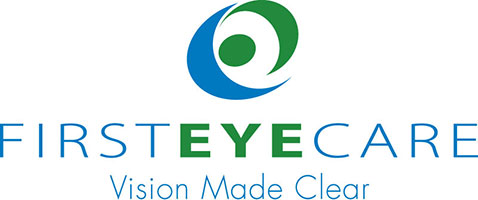Even Athletes Need Vision Correction
Virtually every doctor in the world recommends staying active to keep yourself healthy, including eye doctors. Your entire body benefits from exercise, including your mental health, overall physical health, and even your eyes. One of the best ways to exercise and stay active is by participating in sports. Athletes are constantly engaging in physical activity, even when they aren’t competing.
However, many athletes struggle with their vision. Millions of Americans across the country require some form of vision correction. Whether they suffer from astigmatism, nearsightedness, or farsightedness, many athletes need their vision corrected. Fortunately, there are several options to choose from to help them see clearly when competing.
Now, you may be wondering whether glasses or contact lenses are better for athletes. First Eye Care DFW understands that athletes need their vision to perform well, and we are going to explain the pros and cons of both contacts and glasses for athletes.
Eyeglasses
Glasses have been the go-to choice for vision correction for many generations. They are a tried and true option that enables individuals to see clearly. Many athletes have been known to wear eyeglasses when they are away from the court or field, but what about when it’s game time?
Glasses provide athletes with clear vision, and they also better protect them from dirt and other debris from entering their eyes. However, they do not offer all-around vision support. Athletes will not be able to see things coming from their sides. In sports, this would put you at a disadvantage when another player or a speeding ball is heading your way.
While many manufacturers have been excelling at creating far sturdier materials for eyeglasses, they still don’t always hold up to the stress put on them during sporting events.
More pros and cons include:
Pros:
- Provides clear vision
- Keeps dirt and debris out of your eye
- Keeps you from getting poked in the eye by another player
- Shields you from natural elements like rain, bugs, and more
Cons:
- Offers no peripheral vision
- If you are hit in the face, your glasses may break. Broken fragments can then injure your eyes and face
- Glasses are often more expensive
- Can fog up in cold weather
- Sweat, rain, and water can splatter on the lens and block your vision
- Glasses can be an inconvenience if they slip off your face or shift around
- Mud and dirt can collect on the lens, blocking your vision
It’s understandable why so many people want to avoid wearing their prescription eyeglasses while competing. In drastic cases, it may be necessary to wear them, but many athletes tend to avoid this.
Sports Glasses and Goggles
Before we move onto contact lenses, we need to first discuss sports glasses and goggles. These are very similar to eyeglasses, except they are designed with sports in mind. Prescription sports glasses and goggles are the perfect choice for those who require vision correction but can’t wear contact lenses.
These goggles are far more protective than regular eyeglasses and are much sturdier. Eyecare specialists designed these goggles with high-intensity sports in mind, so it makes sense why the materials used to make them would live up to test. Each year, there are roughly 100,000 sports-related eye injuries, so protecting your eyes should always be a priority.
Pros:
- Provides clear vision
- Protects your eyes from dirt and debris
- Built with impact-resistant materials, ensuring they will not break
- Shields your eyes from any flying balls or body parts
- Some goggles wrap around your face, providing you with peripheral vision
- They do not move around like glasses in the middle of the action
- Great for water sports, which are not good for contacts
Cons:
- Some goggles are still too bulky to wear with other headgear
- May be uncomfortable to wear
- Can fog up in cold weather
- Sweat, rain, and water can splatter on the lens and block your vision
- Mud and dirt can collect on the lens, blocking your vision
- They aren’t typically fashionable
If you find that you can’t wear contacts for whatever reason yet still need your vision corrected, sports goggles should be considered. If you already wear glasses, it would be beneficial to have more than one pair of glasses, including one for everyday use and one for sports.
Contact Lenses
Many athletes across the globe require vision correction. Every sport requires you to have good vision in some capacity. Baseball players need their vision to make contact with a speeding ball while at the plate or while they are fielding. Football players need their vision to locate where the ball is on the field and where other players are to protect themselves.
Having good vision not only improves your performance, but it also keeps you safe. Many eye care specialists recommend contact lenses to athletes. There are several reasons why many people consider contact lenses as the superior option for those who play sports.
Pros:
- Provides clears vision
- Offers good peripheral vision
- Contacts provide better depth perception than glasses
- Do not collect water or dirt on the lens that can block vision
- Do not have frames that can fall off of your face or move around and distract you
- Contacts are more comfortable to wear while being active
- Fogging is not an issue
- Contacts are typically cheaper to replace
- There is no issue when it comes to wearing other headgear
Cons:
- Offers no protection from flying objects like balls or body parts
- Dirt and debris can easily enter your eye and get under your lens
- You cannot compete in water sports with contacts
- If you are poked in the eye, you can easily lose your lens
Vision is an important part of your daily life. It helps you read important documents, drive to and from work, and much more. For athletes, it is just as important. It’s needed in order for them to perform at their highest level. Many athletes require vision correction, and there are plenty of options to choose from. To learn which option works best for you, schedule an appointment with First Eye Care DFW.




Comments
It’s valuable that you mention that contact lenses provide great peripheral vision when you are playing sports. I recently started playing football on the weekends, so I’m thinking about going to a vision center to get contact lenses. I’m going to see if there’s a good vision center in my area that does contact lenses.